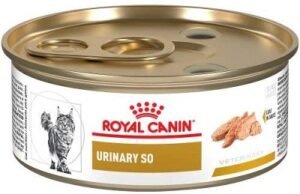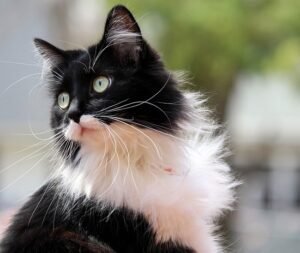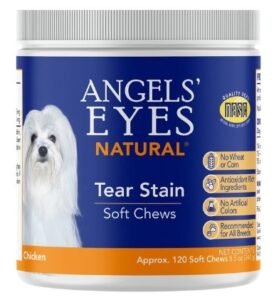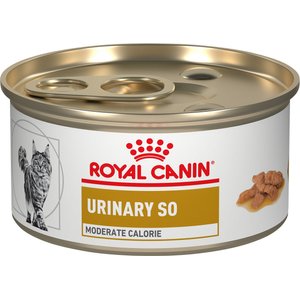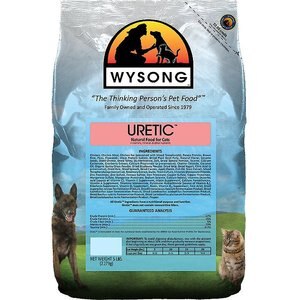Images of cats lapping a bowl of milk have created the impression that cow milk is a perfect delight for every cat. So, can cats drink cow’s milk?
While most cats crave a bit of milk, the supposed love between cats and cow milk is exaggerated.
Although kittens develop an affinity for milk in their early stage, they lose the enzyme necessary for lactose digestion as they grow older. Can cats drink cow’s milk? Here is what many nutritionists believe:
Most Cats Are Lactose Intolerant
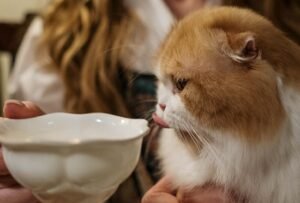 Many cats are lactose intolerant and become dehydrated when fed cow milk. The reason is that most cats lack the enzyme lactase, which helps them digest the lactose in milk.
Many cats are lactose intolerant and become dehydrated when fed cow milk. The reason is that most cats lack the enzyme lactase, which helps them digest the lactose in milk.
After birth, kittens can maintain a sufficient level of lactase to break down sugar from breast milk into simpler particles, including galactose and glucose.
These two products are easier to absorb and do not cause much harm to the cat’s metabolism.
Unfortunately, adult cats do not have sufficient enzymes to process lactose, so the milk remains undigested in their digestive system.
When lactose intolerant cats drink milk, the undigested lactose passes through the intestinal tract absorbing water with it.
Similarly, bacteria in the colon ferment the unprocessed sugars, producing volatile fatty acids. As a result of these series of activities, the cats may develop stomach upset that may induce vomiting and diarrhea.
Other gastrointestinal issues that may affect your cat from drinking cow milk are bloating and flatulence.
Is there a difference between lactose intolerance and milk allergy?
In answering the question ‘can cats drink cow’s milk? First, you must understand the difference between lactose intolerance and milk allergy.
Your cat suffering from lactose intolerance is different from being allergic to milk. While lactose intolerance is the inability to digest lactose or milk sugar, milk allergy is a severe reaction to casein milk and several dairy products.
Although some symptoms of both conditions are the same, milk allergy comes with other symptoms such as increased shedding, skin redness, dryness, and itchy bottom.
If you observe milk allergy in your cat, do not hesitate to schedule an appointment with your vet for comprehensive tests and physical examination.
So, is cow milk healthy for kittens?
Can cats drink cow’s milk? So far, we can see that cow milk is not healthy for cats. But what about kittens?
Since kittens produce enough lactase to digest lactose, you would expect cow milk to benefit them, right? Well, the answer is a resounding no, and here is why.
Nursing kittens derive their nutrient from breast milk in the first eight to ten weeks (before they are old enough to eat solid food).
Like in most mammals, breast milk forms a crucial part of the kitten’s diet and is highly beneficial for their growth. However, milk from another animal species at this stage is way too strong for the kittens developing digestive system.
Cow milk contains a high amount of lactose, casein, and fat that may be too difficult for them to process and can cause:
- Obesity
- Diabetes
- Gastrointestinal problems
- Food allergy development
- Heart, kidney, or liver disease
Also, note that cow milk contains high sugar and fat and is not as nutritious as adult cat milk or specialized kitten formulas.
Can my cat die from drinking too much cow milk?
Most feline owners often look for the best ways to feed and nurture their cats. Aside from the question of can my cat drink cow milk? Many cat owners want to know if their cats can die from drinking too much cow milk.
Although lactose intolerance is a problem for many cats, it is not life-threatening. However, your cat could suffer from indigestion which may be severe or mild.
Generally, symptoms may manifest within 8 to 12 hours after consumption. However, if the symptoms persist after a day, you should schedule a visit with a veterinarian as there might be a more severe cause of indigestion.
Cats are predatory animals, and as such, their metabolism is not built to process high amounts of sugar.
Feeding cow milk to your cat could have a long-term effect on her health. A cat’s diet high in carbs could result in several conditions, including diabetes, obesity, intestinal blockage, pancreatic disease, liver, and kidney failure.
What type of milk can my cat drink?
Can cats drink cow’s milk? No. So the question is, what type of milk is suitable for my cat. The following are some types of milk you can give to your cat;
1. Kitten milk replacer (KMR)
Kitten milk replacer is a unique cat milk formula available in pet stores. It contains less lactase which reduces the likelihood of your cat falling sick.
KMR comes in canned and powdered forms. Note that unique cat milk formula contains a high amount of fat.
So, it would help if you offered it in small quantities to your pet or as an occasional treat.
2. Goat milk
Goat milk contains less lactose than cow milk, so it is easier for cats to digest it. Similarly, goat milk has less fat than cow milk.
However, it would be best if you serve your cat with limited amounts to prevent any medical condition resulting from a high-fat diet.
3. Almond milk
Almonds are not toxic to cats. As a result, you can safely give your cat almond milk. However, you must note that almond milk has a high-calorie content and should be given to your cat in limited quantities.
4. Soy milk
Soy milk is also perfect for cats as it is a good protein source. Milk made from soy can be found in many cat food stores and supermarkets.
The main problem with soy milk is that it is a leading food allergen in many pet food. As a result, it should not be given to cats with food allergies.
4 Milk alternatives for your cat or kitten
| PRODUCT | FEATURES | View on AMAZON | View on CHEWY | |
|---|---|---|---|---|
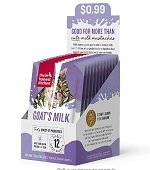 | The Honest Kitchen Dehydrated Goat's Milk 12 pk | Human grade No GMO, preservatives or by-products Probiotics, 4.3 STARS |  | |
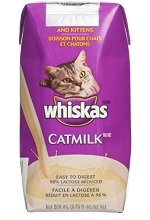 | Whiskas Catmilk | Beef flavor Protein rich 98% reduced lactose Vitamin enriched Dehydrated cows milk base 4.7 STARS |  | |
 | PetAg KMR Kitten Milk Replacer Milk Powder Formula Newborn to 6 Weeks | Prebiotics probiotics Complete diet 4.8 STARS |  | |
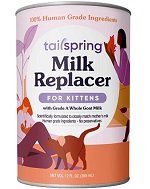 | Tailspring Milk Replacer for Kittens in Liquid Form | No mixing Goat milk base Human grade No preservatives or artificials 4.0 STARS |  |
Best way to feed your cat milk
Dairy products should only be used as occasional treats for your cat. An average-sized house cat should consume about 200 calories per day. Therefore, any treatment should not exceed 10% of the daily requirement.
Conclusion- Can cats drink cow’s milk?
Although milk is not lethal to cats, it should be given only in moderate quantities.
If your cat experiences stomach upset, vomiting and diarrhea, they are likely lactose intolerant, and you should discontinue feeding it milk.
So, cats cannot drink cows milk, but can they eat chocolate? That’s the topic for our next article.

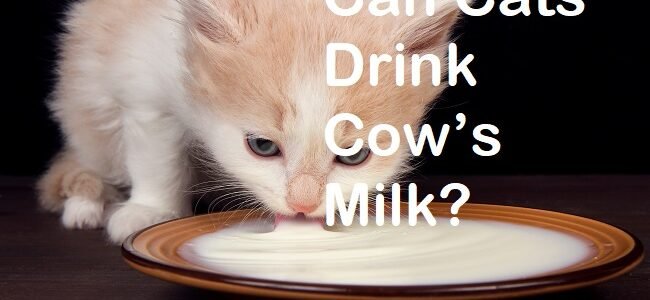
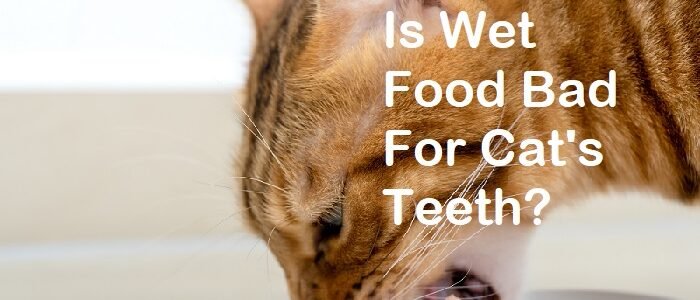
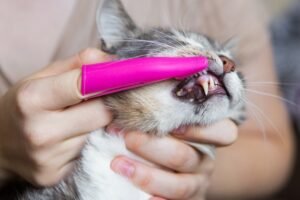
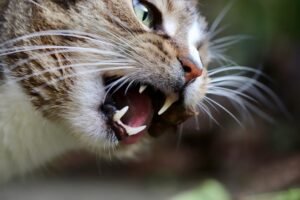
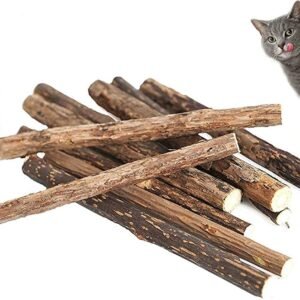
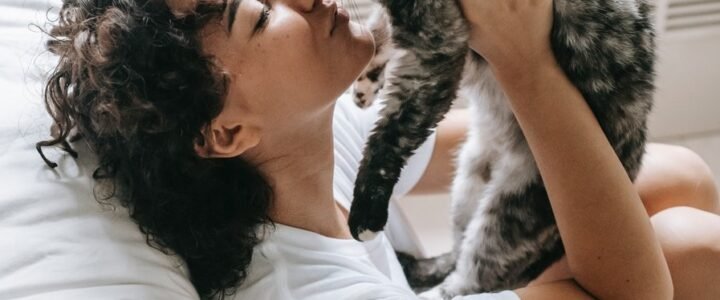
 undergo this can be alarming, and a visit to the vet is crucial.
undergo this can be alarming, and a visit to the vet is crucial.